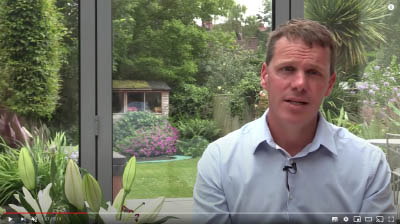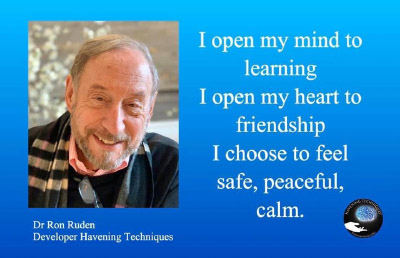Welcome to the website of Outside-In Psychology Practice Hekking
Licensed Clinical psychologist and Child-therapist in the Netherlands
Also online therapy and counseling for people abroad.
● For (online) psychological treatment, professional performance enhancement coaching or supervision
● Rianne Hekking (post-MSc Healthcare)
● Licensed Psychologist and child therapist, certified Brainspotting Practitioner, certified personal boundary awareness therapist.
● Specialized in (adverse childhood) trauma treatment
● Working face-to-face and online in Dutch or English, in and outside the Netherlands
● Possibility of free (online) meeting of max 20 min. when you are interested in getting therapy or coaching
who looks outside, dreams…
…who looks inside awakens.
Carl Jung
Therapy
Welcome
Are you looking for a warm, supportive and confidential environment, responsive to your unique needs and therapeutic goals?
I can help you understand old maladaptive patterns and create new positive ways of connecting in the world. My goal is to assist you in discovering your own answers to your questions. Apart from that, I can help you with processing difficult experiences in your life to become more resilient and to experience more freedom in life. Rigid negative patterns that prevent you from living your life according to your values can also be addressed.
Outside-in Psychology practice Hekking. Why this name?
The path of mindfulness is not a journey from here to there but from there to here (Kornfield, 2008). In order to arrive in your inner world, you must cross the boundary of your inner world from outside to within. (Blaser, 2021)
How do I work?
I use an integrative, psycho-sensory approach and adjust my choices of modalities and approaches to the individual needs of the clients. I’m a certified (trauma)therapist in many evidence-based or at least practiced-based modalities. It can be helpful to come to one’s issues from many angles and to work with mind, body, and spirit. The focus can include increasing healthy and effective strategies, strengthening internal resources, finding your healthy desire and mission in life, formulating your values and priorities in life, and becoming more empowered. My most important job as a therapist is to facilitate you in the neurobiology-based process by and through which your brain heals itself. I believe in growth, change, and virtually unlimited development of the brain and so of growing capacities and possibilities of any client. See more about treatment modalities
We will work together as a team, and therefore we will have both responsibilities to make the therapy successful. I will regularly check if you are satisfied with my approach and if it needs some adjustment. Feel free to give feedback and/or suggestions. When there is anything that bothers you about the therapy, I am open to finding a way that works for both of us in order to maintain a trusting environment.
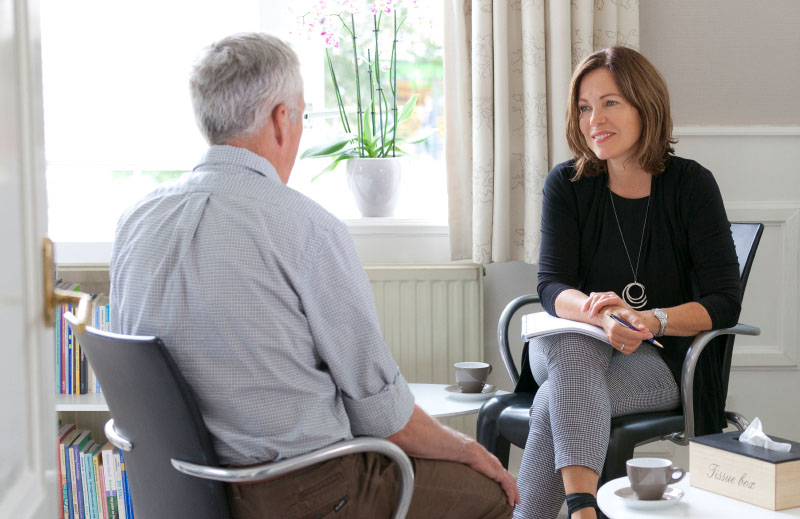
What kind of issues can I help you with?
I can assist you in helping relieve mood swings, depression, anxiety, phobia, grief and anger as well as chronic illness/pain, (mild) addiction, relational and work-related issues. Facilitating healing from trauma (also PTSD), alleviating burn-out, and navigating the challenges of Autism are also my specialties.
Whatever tools I use to assist you, it is very important for me to maintain a warm, open, and respectful approach and to always have your consent. I take time for you and I will work with you (and sometimes also other important people in your life) as a team to address your issues.
Who can I help?
I welcome adults, adolescents, and children (with their parents) with mild to moderate mental health problems. For counseling, (trauma) therapy, support and parenting advice. Often mental problems and distress will manifest itself in chronic physical complaints.
With adults and adolescents, I either meet face to face or long-distance by using video conference. With children, I usually only work face-to-face. It is additionally important to note that working with children means that parents are involved in the treatment as well.
Who should seek help elsewhere?
If you are dealing with severe acute problems, preparing (self)destructive actions, or when you are in a psychotic phase, please contact your GP/Family physician for a referral to more intensive/specialized mental care. Outside-in Psychological Practice Hekking has no facilities for urgent mental care. Also, clients with OCD and severe eating disorders are requested to seek a therapist who is specialized in this area. I also don’t offer marital therapy or therapy to people with a personality disorder in general.
Cost consult 2023
The price for an online consult (from abroad) is 100 euro per hour (50 min. contact and 10 min. administration). For coaching an additional 21% tax is required (not for therapy). Online therapy needs to be paid upfront.
Location
Address: Josef Israelslaan 123, 6813 JC Arnhem, Netherlands
Free parking on the road
Tel. +31 610548159
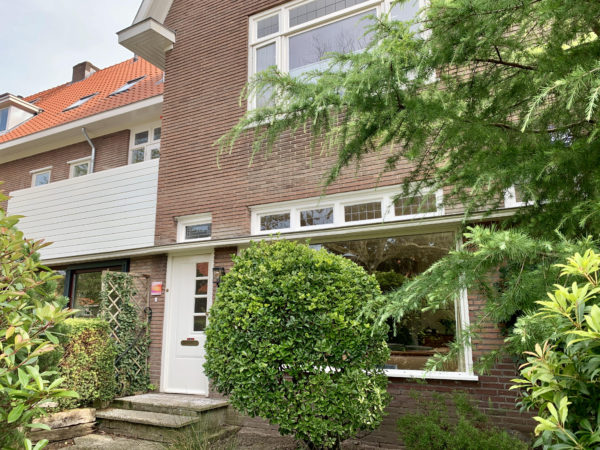
Our intellect can be deceived, our feelings manipulated, our perceptions confused, and our body tricked with medication.
But some day the body will present its bill.”
Alice Miller
Trauma
What are the symptoms of trauma?
Trauma is an emotional response to something that happens. This includes anything that is too much or happens too fast for your nervous system. It is said that our nervous systems are only meant to be experiencing this kind of activation every 2-3 months, yet many of us experience this overwhelm daily, overstressing our systems and causing disregulation.
Symptoms of unresolved, long-term trauma include:
- depression
- anxiety disorders
- anger issues
- flashbacks
- unpredictable emotions
- headaches
- nausea
- strained relationships
- poor decision-making
- self-destructive behaviours
- eating disorders
The longer it is left unresolved, trauma will trigger real physical pain, symptoms and disease.
These symptoms are the body’s way of communicating that the flow and the rhythm of the nervous system is off kilter and needs to be “re-set”
Re-establishing the cycle between alertness and rest
The reason you want to create a more regulated nervous system is to restore the natural flow between alertness and rest. When trauma occurs, this cycle is interrupted and an energy charge gets “stuck” in your body. This energy charge gets continually triggered when you encounter people, situations or anything that reminds us of that earlier experience you never got to “protect” against. You can never fully live in the present when our past has not been processed which mean we can never be fully present.
- anxiety and stress
- Panic attacks
- Depression
- Nightmares and night terrors
- Abrupt mood swings
- Exaggerated emotional and startle responses
- Hyperactivity
- Intrusive imagery or flashbacks
- Hypervigilance
- Exaggerated or diminished sexual activity
- PMS
- Digestive disorders
- Recurring back problems
- Chronic pain
- Fatigue
- Brain fog
- Insomnia
- Neck pain
- Headaches/ Migraines
- Unhealthy weight
- Difficulties with adapting to the world
Brainspotting Therapy, Havening and others techniques are effective modalities to treat people with anxiety, trauma, PTSD and Phobia. For more information see below in ‘therapy modalities’.
Unhealthy coping mechanisms
Difficult experiences from our past can leave an impact on the way we perceive and react today. In response to these situations, we may have learned to behave in ways that “protect” us from emotional pain and chronic stress or anxiety. These coping mechanisms are often not helpful on the long turn and can become unhealthy patterns that cause more suffering. Even though these emotional addictions are not good for us, we become attached to them as part of our worldview. If you’re struggling with unhealthy behaviors/patterns (too much of something unhealthy or too little of healthy behavior) , it’s important to know that recovery and healing is possible, and with it comes greater freedom, joy, and well-being.
Examples of unhealthy coping mechanisms:
- avoiding issues or (social) situations
- over or under eating
- binge-watching
- smoking or chewing tobacco
- negative-selftalk
- excessive drug or alcohol use
- impulsive spending
- becoming aggressive or violent
NEW: Havening Techniques
Havening is a rapid, gentle and effective approach for helping people overcome anxiety based problems. Distressing feelings such as intermittent panic, stress from trauma, chronic pain, fears, depression, addictions and other related issues are amenable to Havening. In addition Havening Touch helps develop states of emotional wellbeing and resiliency. Rianne Hekking is a certified Havening practitioner since april 2020.

Please contact us for more information or to book a consultation
Therapy modalities
Information about some of the techniques used in this Practice
Havening Techniques ®
Rianne Hekking is a certified Havening practitioner.
For more information also see my website Havening.online/eng
The Havening Techniques are a rapid, gentle and effective approach for helping people overcome anxiety-based problems.
Distressing feelings such as panic, stress from trauma, chronic pain, fears, phobias, depression, worry, addictions and other stress-related issues are amenable to Havening.
Havening is a new therapy modality, focused on body and mind with amazing and lasting results. You don’t have to tell the whole story and don’t have to stay with the unpleasant feelings!
- Free yourself permanently from disruptive feelings
- Change undesirable behavior and habits
- Maximize your potential
- Increase your self-confidence
- Strengthen your mental flexibility
- Optimize your (professional) performance
Who can use Havening?
- Adults, adolescents and children
- (Professional) artists, athletes
- Employees and executives for performance enhancement
- Companies/organizations who take care of their staff or want to avoid their employees to drop-out from work for example by getting burned-out
- It also can be used as a self-help tool for stress or anxiety management
What is Havening?
Havening is a special psycho-sensory therapy-modality that enables clients to resolve traumatic events and the associated negative emotions. There is a set of techniques that can be used, which is aimed at restoring the self-regulating capacity of the brain. Through physical touch (Havening Touch®) of upper arms, palms of the hands and face, the brain is stimulated to produce delta waves in the brain. Havening Touch is a wonderfully gentle, intuitive, self-healing process using inbuilt biological healing mechanisms.
The soothing touch is usually applied by the therapist to the client. It is also possible that the client applies this to him/herself during a Havening session, guided by the therapist, who is doing the same to mirror the movements.
Furthermore, pleasant distraction techniques are used by burdening the working memory with simple neutral assignments like counting backwards. In the meantime, the therapist maintains a safe, respectful and attuned interaction with the client to facilitate the healing process.
Havening takes you to a ‘haven’; a safe place where recovery can begin. Eventually you will no longer be triggered by old painful memories and experiences. There will be space for new feelings and behavior. The experienced change will (usually) be a permanent one: the memory is no longer connected to a trauma, it only becomes a past experience, benign and deactivated.
I teach all my clients how to do self-havening, so that they have a tool they can use to address stress or anxiety.
For more information, please visit www.havening.org and see these demos:
Results
Some clients, who are otherwise resilient and have discrete traumatic memories, can be cured in a single session. Other clients may need many sessions to deal with lifelong, severe trauma, and the guidance of an experienced practitioner becomes crucial. The typical course of Havening might be four to six session.
Havening Touch also works very effectively via video call so you can do the work from home!
Havening was researched and developed by the renowned American med. doctor and neuroscientist; Dr. Ronald Ruden.
Brainspotting Therapy (BSP)
Brainspotting is a highly effective treatment of trauma, mood disorders, addictions, sports trauma, and creative performance expansion.
To effectively work through your trauma, you first have to identify it. Brainspotting can help you tap into sources of trauma and negativity so you can begin working to overcome specific sources of negative emotion.
‘Where you look affects how you feel!’
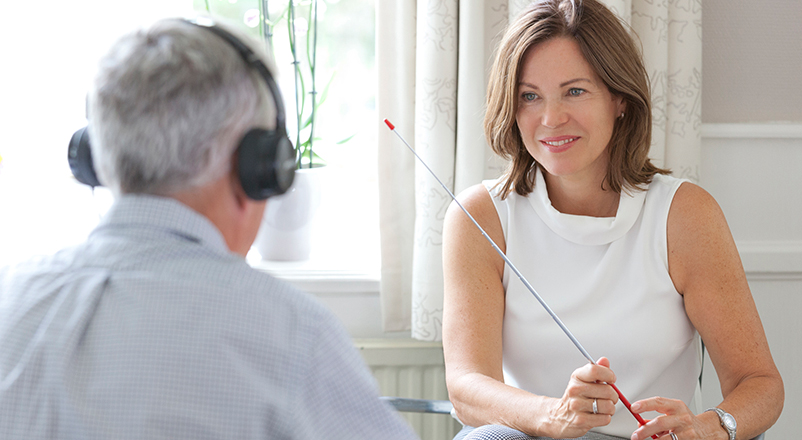
Brainspotting technique
Brainspotting is an amazing tool that helps you gain access to your sub-cortex in order to process and release trauma.
David Grand, Ph.D (USA) developed Brainspotting in 2003, and it is spreading throughout the world now as a very effective treatment and coaching technique.
Brainspotting is a form of treatment that works by identifying, processing, and releasing core neurophysiological sources of a variety of emotional and physical challenges at a deep brain level. Simply put, Brainspotting suggests that the direction in which people look and the positioning of their eyes can affect how they feel.
During Brainspotting, therapists help people position their eyes in ways that enable them to get in touch with sources of negative emotion.
Therapists trained in Brainspotting strategically guide the eyes of people in therapy across their field of vision to find certain “Brainspots” where an eye position engages a traumatic memory or painful emotion. Brainspotting allows therapists to access emotions on a deeper level and target the physical effects of trauma.
For more information please visit this video-link about Dr. David Grand explaining BSP: https://www.youtube.com/watch?v=lm3Plvaf3UE
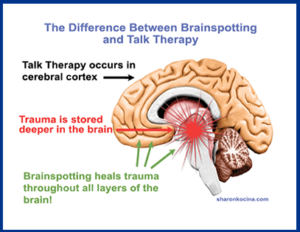
Read also this article over Brainspotting by Frank Corrigan and David Grand.
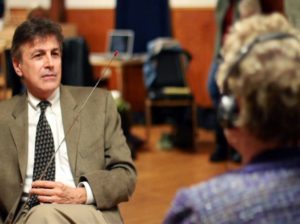 Brainspotting by dr. David Grand
Brainspotting by dr. David Grand
Compassionate Inquiry (CI)
Rianne Hekking is a CI-educated therapist
Using Compassionate Inquiry (CI), both the client and therapist unveil the level of consciousness, mental climate, hidden assumptions, implicit memories, and body states that form the real message that words both express and conceal.
Through this work, clients can connect to the truth within themselves in the present moment, become free from self-generated suffering, gain insight, clarity, and choice in their behavior.
“The purpose of CI is to drill down to the core stories people tell themselves – to get them to see what story they are telling themselves unconsciously; what those beliefs are, where they came from; and guide them to the possibility of letting go of those stories, or letting go of the hold those stories have on them. That’s what CI is.” Gabor Mate
For more information please visit this video link: Dr. Gabor Mate explaining CI https://www.youtube.com/watch?v=NQPsC8d5cb0
3-Dimensional Boundary Visualisation (3-D BV)
Rianne Hekking is certified as a Boundary Based Awareness Counselor (BBAC) and works with 3-D boundary visualisation.
3-D BV is a new and powerful therapy that makes you aware of your personal boundaries and how to protect your inner personal space by setting healthy boundaries.
This therapy modality is based on the Interpersonal Self Boundary Awareness model (SBA), developed by dr. Nick Blaser from Switzerland: Centre for applied Boundary Studies:
All of us possess an internal image of the boundary between us and the outside world, although it is not something of which we are generally aware.
We can externalize this unconscious picture and view it three-dimensionally by means of wooden blocks and figures (see photograph).
Using this constellation, we are able to see how we “stand in the world” and how open or closed we are to our surroundings. For that reason, it is also called ‘self-boundary awareness therapy’.
By means of such spatial representation (3-DBV) we can visualize old and more recent interpersonal dynamics and recognize and alter behavioral patterns. In this way, it is possible to forge a healthy self-boundary. Just as the old, unconscious image of “being in the world” shaped us for many years, the new picture, optimized for our current life situation, can have a very positive impact.

Self Boundary Awareness visualization
Acceptance and Commitment Therapy (ACT)
Rianne Hekking successfully finished advanced training of ACT (Acceptance and Commitment Therapy) with adults and also with adolescents.
We officially say ACT as the word “act” and not as the initials A-C-T. There’s a good reason for this. At its core, ACT is a behavioral therapy: it’s about taking action. But it’s not about just any old action.
First, it’s about values-guided action. There’s a big existential component to this model: What do you want to stand for in life? What really matters, deep in your heart? What do you want to be remembered for at your funeral? ACT gets you in touch with what really matters in the big picture: your heart’s deepest desires for whom you want to be and what you want to do during your brief time on this planet. You then use these core values to guide, motivate, and inspire behavioral change. Second, it’s about “mindful” action: action that you take consciously, with full awareness, open to your experience, and fully engaged in whatever you’re doing.
ACT gets its name from one of its core messages: accept what is out of your personal control, and commit to taking action that enriches your life.
The aim of ACT is to help us create a rich, full, and meaningful life while accepting the pain that life inevitably brings. ACT does this by
- teaching us psychological skills to handle painful thoughts and feelings effectively, in such a way that they have much less impact and influence. These are known as mindfulness skills and
- helping us to clarify what’s truly important and meaningful to us. That is, clarify our values and use that knowledge to guide, inspire, and motivate us to set goals and take action that enriches our life.
More information about ACT – click here
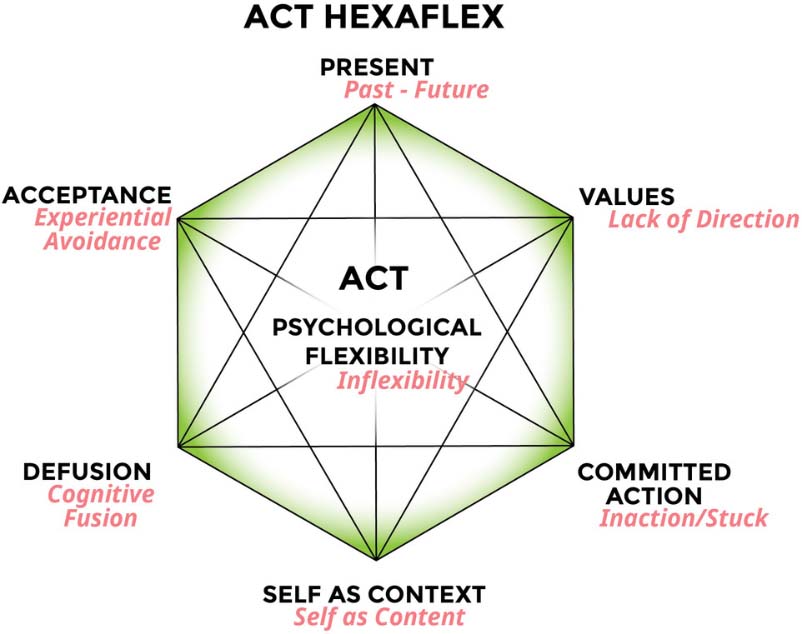
Schema-Focused Cognitive Therapy
Schema Therapy (or more properly, Schema-Focused Cognitive Therapy) is an integrative approach to treatment that combines the best aspects of cognitive-behavioral, experiential, interpersonal, and psychoanalytic therapies into one unified model. Schema-Focused Therapy has shown remarkable results in helping people to change negative (“maladaptive”) patterns, they have lived with for a long time, even when other methods and efforts they have tried before have been largely unsuccessful.
The Schema-Focused model was developed by Dr. Jeff Young, who originally worked closely with Dr. Aaron Beck, the founder of Cognitive Therapy. While treating clients at the Center for Cognitive Therapy at the University of Pennsylvania, Dr. Young and his colleagues identified a segment of people who had difficulty in benefiting from the standard approach. He discovered that these people typically had long-standing patterns or themes in thinking, feeling and behaving/coping that required a different means of intervention. Dr. Young’s attention turned to ways of helping patients to address and modify these deeper patterns or themes, also known as “schemas” or “lifetraps.”
The schemas that are targeted in treatment are enduring and self-defeating patterns that typically begin early in life. These patterns consist of negative/dysfunctional thoughts and feelings, have been repeated and elaborated upon, and pose obstacles for accomplishing one’s goals and getting one’s needs met. Some examples of schema beliefs are: “I’m unlovable,” “I’m a failure,” “People don’t care about me,” “I’m not important,” “Something bad is going to happen,” “People will leave me,” “I will never get my needs met,” “I will never be good enough,” and so on.
Although schemas are usually developed early in life (during childhood or adolescence), they can also form later, in adulthood. These schemas are perpetuated behaviorally through the coping styles of schema maintenance, schema avoidance, and schema compensation. The Schema-Focused model of treatment is designed to help the person to break these negative patterns of thinking, feeling, and behaving, which are often very tenacious, and to develop healthier alternatives to replace them.
Schema-Focused Therapy consists of three stages. First is the assessment phase, in which schemas are identified during the initial sessions. Questionnaires may be used as well to get a clear picture of the various patterns involved. Next comes the emotional awareness and experiential phase, wherein patients get in touch with these schemas and learn how to spot them when they are operating in their day-to-day life. Thirdly, the behavioral change stage becomes the focus, during which the client is actively involved in replacing negative, habitual thoughts and behaviors with new, healthy cognitive, and behavioral options.
What is Schema therapy? 1 – click here to watch
What is Schema therapy? 2 – dr. T. Grande – click here to watch
Inner child work
Rianne Hekking successfully finished advanced training in internal family systems therapy (IFT) and inner child therapy.
- Do you often feel that you have no control over your life? Do you feel like you keep making the same poor choices over and over again? It could be because your inner child is in the driver’s seat, and if you’ve ever seen a six-year-old drive, well, that says it all. In therapy you will develop skills to bridge your adult part with your inner child part, leading to a more balanced way of living in the world that fills your life with joy, laughter, fun, success, and healthy relationships.
- Relationships can be challenging. What makes them even more challenging is when our adult behaviors reflect the unmet needs we had as children. It is important to heal our past inner child wounds as it will probably have a (damaging) effect on the quality of our present-day relationships
What is my Inner child?
The inner child encompasses the parts of our psyche that retain the qualities we all possessed as children. The joyful energies of creativity, curiosity, playfulness, and spontaneity are potent: they can mobilize a collapsed system and can be a catalyst in the healing process.
The Inner child work also describes parts of us that have been deeply wounded. Various incidents in our childhood, especially highly charged ones that left us hopeless, sad, angry, scared, and/or unsupported live unchanged in our ‘inner world’ and manifest themselves in our behavior.
Why does this happen?
At the time when a damaging incident during childhood occurred, our little systems were not developmentally equipped to process such a large charge, usually coming at us from an adult who had more power than us. We simply did not have the cognition to understand what was happening and often there was no supportive presence to explain it to us. So, the emotion was left unprocessed and frozen in our energy field. These early experiences leave “markers” in our body, mind, and spirit that show up in adulthood as thoughts, beliefs, images, energy tones, and habits.
When energies are unresolved, they create a dynamic in the energy field.
The inner child in us unconsciously re-creates the childhood environment by projecting roles of significant others such as parents and siblings on current relationships. The unmet need of the wounded child wants to get met and re-creates the situation in the hopes of making that happen. For example, unresolved issues with a father or other authority figure will get projected onto our boss. And if we were hurt by excessive criticism by our parents, our inner child will scan faces, voices, behaviors, and gestures
looking for and therefore finding signs of criticism in the environment while overriding signs of love and support.
Contacting Our Inner Child
When we reconnect and resolve our childhood issues, we reprogram the negative conditioning of the past with something more positive.
Energies held in the system can be experienced and processed. The childlike qualities that were being held hostage become available to complete the developmental learning that did not take place in childhood. These learnings create self-esteem and the safe boundaries that we need to be open, tolerant, non-judgmental, spontaneous, loving, and cooperative rather than forever on guard.
One way to heal our younger selves is to access the “charged” childhood memory and re-experience it with what I call the C-qualities:
Calm, curiosity, Connection, Compassion, Confidence, Clarity, Consolation, Courage, Creativity
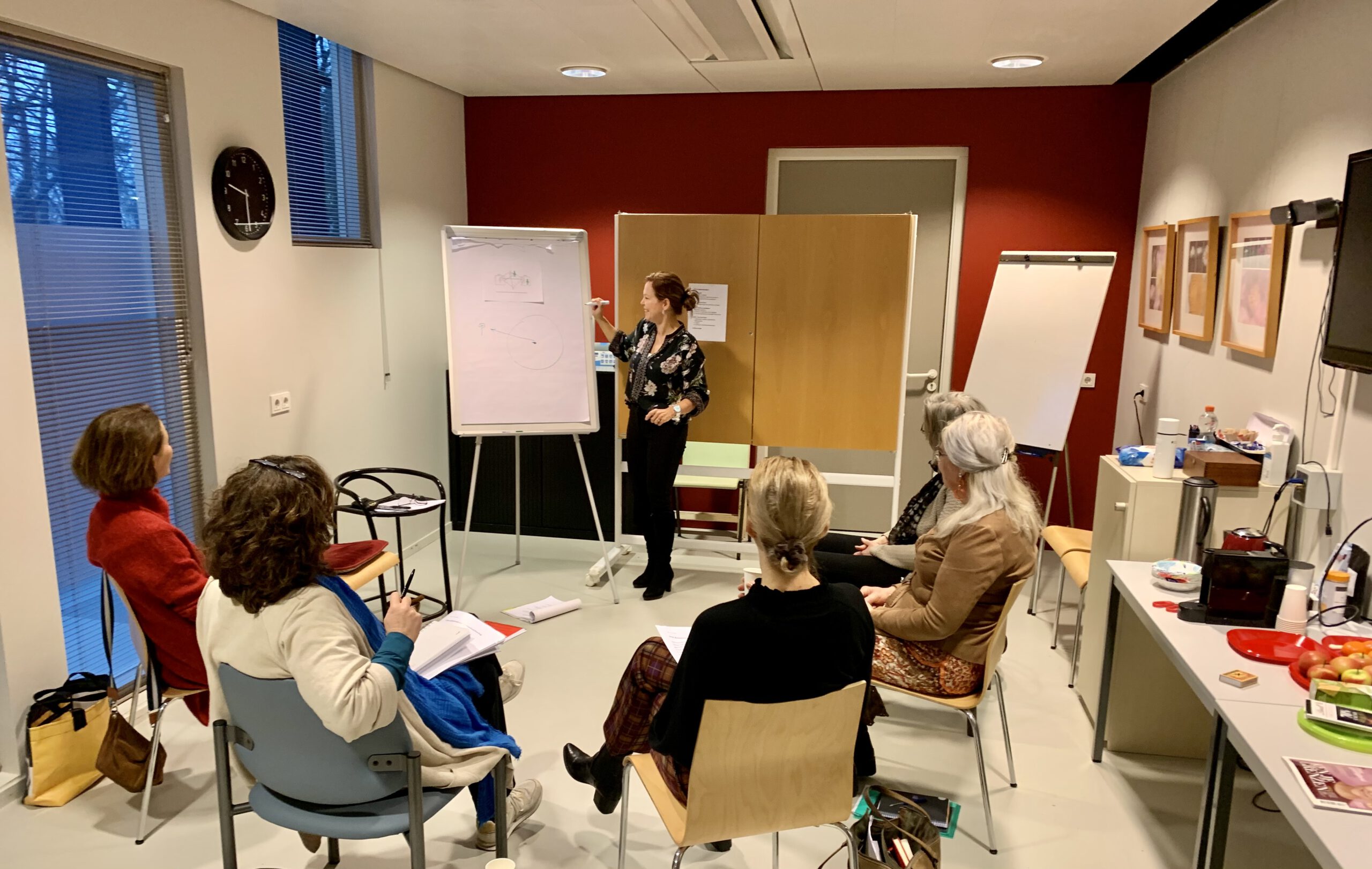
Testimonials
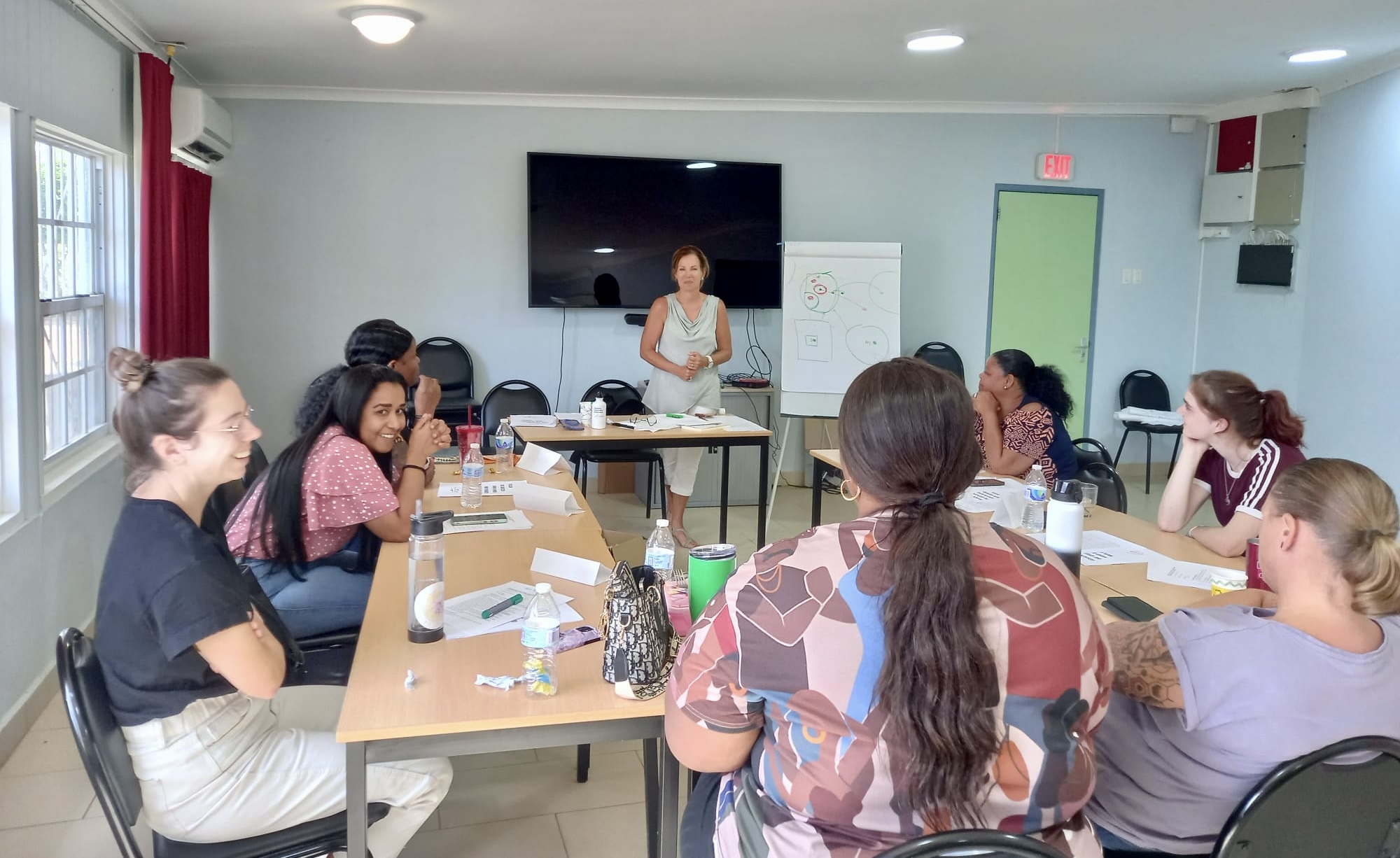
Working with the blocks and building my own ‘garden-fence’ showed me how I didn’t protect myself enough in real life. My garden was open to anyone and people didn’t even know If they were in my garden or outside. I used all my energy by being vigilant to what people were doing in my garden and I wasn’t aware of it. The wonderful thing was that when I closed my fence (with the blocks),.. read more
With professional skill and personal empathy, Rianne guided me in learning how to accept myself and enjoy life’s happy adventure.
Working with Rianne for the last 10 months has changed my life. As a survivor of severe childhood trauma, I have felt truly safe opening up with her in session. This is due to her ability to be present and nonjudgmental, guiding me but allowing me to find my own answers in the process. She is wise and has much experience to draw on. She offers powerful, effective tools for healing. As a therapist myself, she has helped me grow in my skill and understanding, making my work with my own clients more effective. She is a true professional and I would not hesitate to recommend her to anyone.
I only needed two sessons to be able to move on again! It was amazing Rianne! you work in such a gentle, attentive and intuitive way that I felt completely safe and I didn’t feel raw after the sessions. I got access to joy, growth and faith again. Thank you so much!
When I walked in, I was scared. I had never done this. What is she going to do? How can she help me? What if I cry? But she gave me a warm welcome. It was weird at first, but it helped so much. I can now relax and enjoy the things around me.
First, I want to say that I would recommend Brainspotting to everyone who is struggling with emotional pain or nerves or anything that can be seen as an obstacle. I am really glad I did this because I am less nervous now. What I liked the most about Brainspotting is that you don’t have to talk a lot (if you want you can but if you are not a talker then you don’t have to).
In the course of a few weeks and a variety of therapeutic tools, Rianne Hekking raised me out of a bad episode during my failure to cope after the death of my wife, and led me into a healthier and happier life. I found her to be a thoroughly caring person, and her therapeutic approach to be highly perceptive, insightful, innovative, flexible, and effective.
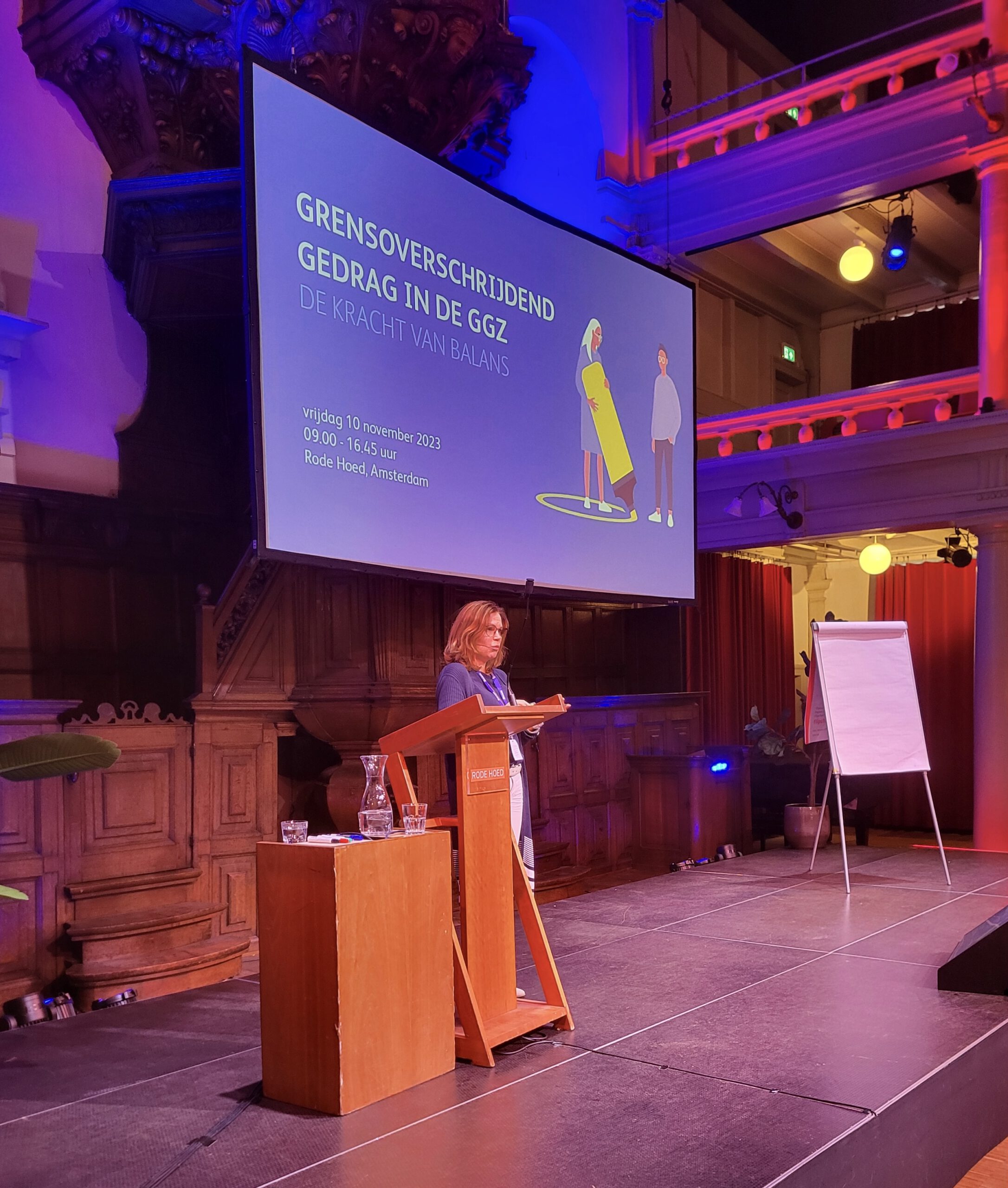
Coaching
Performance enhancement for professionals
Brainspotting
This is a highly effective approach to coach people with performance blocks, sports trauma, and to creative performance expansion.
Brainspotting & sports trauma
Athletes can experience mental blocks that prevent them from reaching optimal performances following the trauma of sports injuries. Through specialized brain-body based treatment, we can unblock those mental areas that are hindering your performance and help you reach your maximum potential.
Dr. David Grand, developer of the groundbreaking therapeutic technique Brainspotting, helps performers of all kinds (from around the world) defeat their performance anxiety and recover the power of their gifts. Watch the video!
Brainspotting & creative expansion
Through a specialized brain-body based approach, we can help artists reduce performance anxiety and increase their abilities to step into character more fully. Together, we can use Brainspotting to help you release your current tensions and creative blocks so you can perform at a higher level with greater mental and emotional clarity.

Please contact us for more information about coaching
My education and work experience
I received a Master’s Degree in Child Psychology in 1991 and a Post-Master’s Degree in Psychology for Adults in 1999. Since that time, I’ve worked as a psychologist in special needs education for children, mental (group)care for children and adults, as well as with families with complex and severe challenges.
I also worked as a lecturer in child psychology at HAN, University of Applied Sciences in Nijmegen.
In the last 8 years I have been trained in around a dozen innovative therapy approaches and modalities, which I use in a personalized way, according to what a person needs and wants.
https://rotaryclubofnorfolk.org
* My private practice is based in the Netherlands and I work according to Dutch rules and legislations.
* I strictly adhere to privacy rules regarding confidential client information. I have a privacy statement according to the GDPR-law.
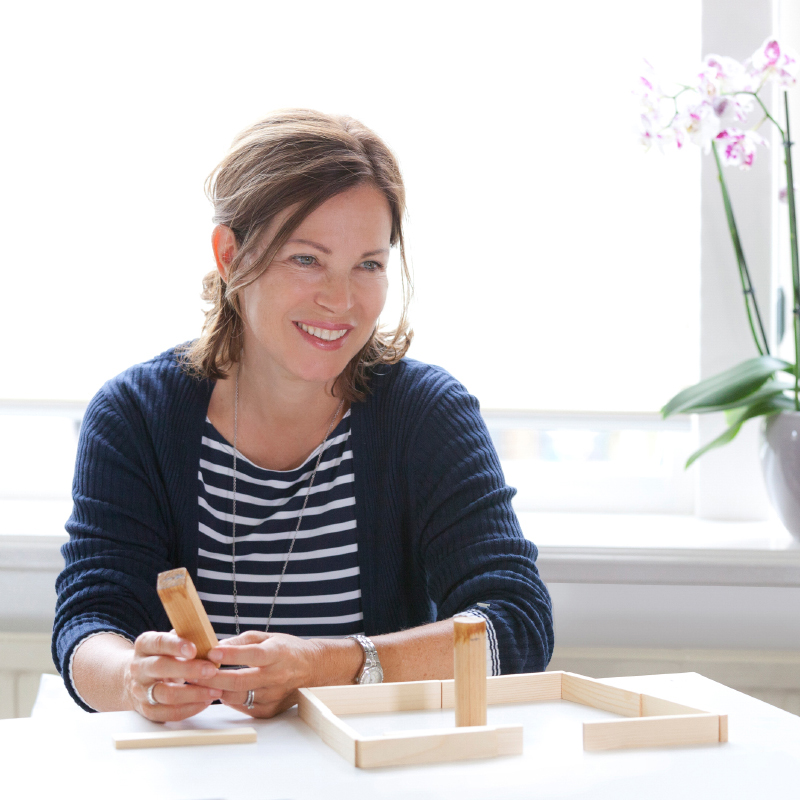
Waitinglist:
No
Outside-In Psychologypractice Hekking
Adres: Josef Israëlslaan 123
6813 JC Arnhem
Email: psychologiepraktijkhekking@gmail.com
Phone: +31 6 10548159
Opening hours:
The practice is open for therapy and coaching on
Monday, Tuesday and Thursday
from 8.30 am – 5.30 pm
Rianne Hekking
Clinical psychologist and child psychologist
AGB practice: 94063046
AGB pers.: 94010809
BIG: 59049655925
